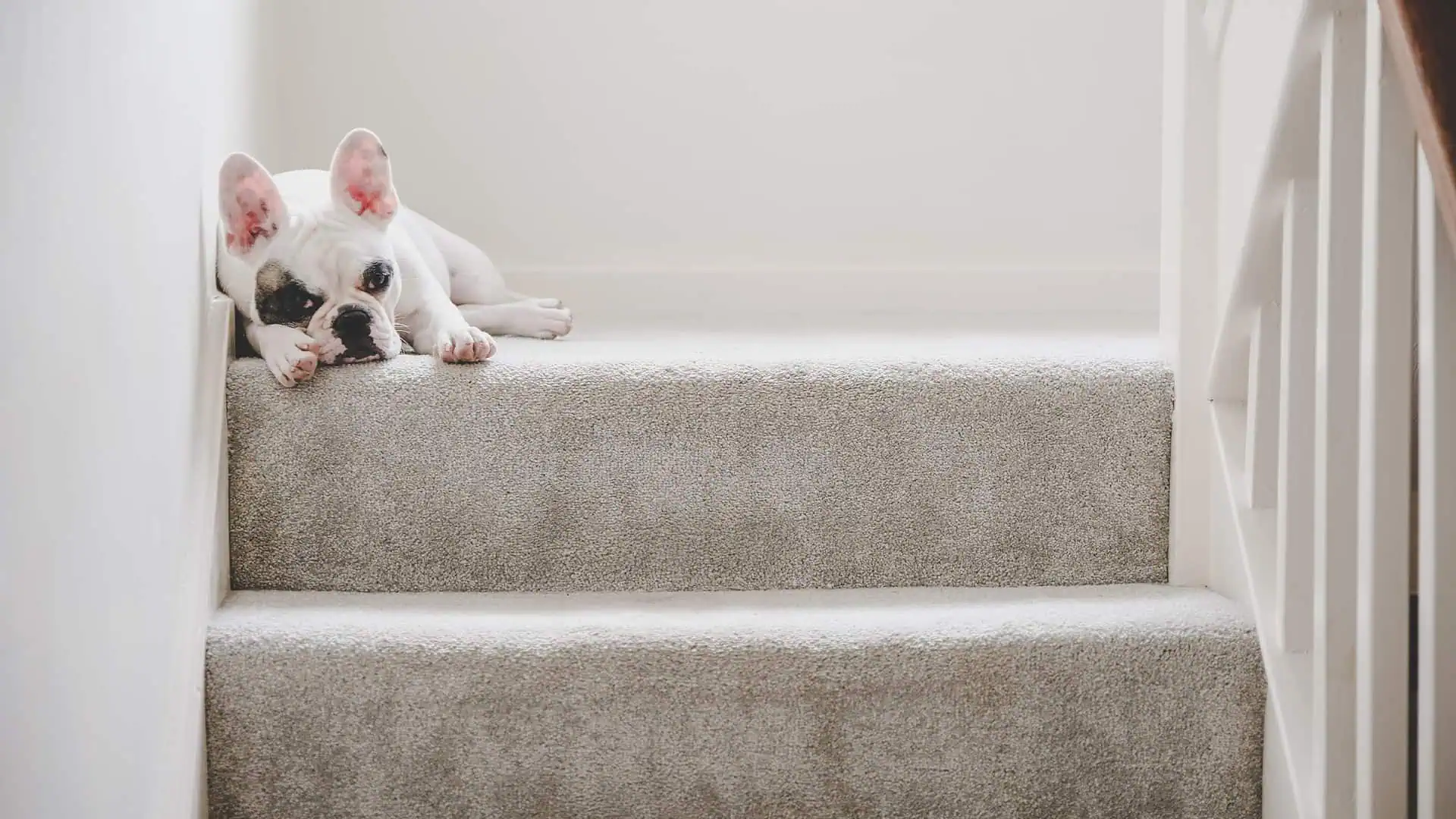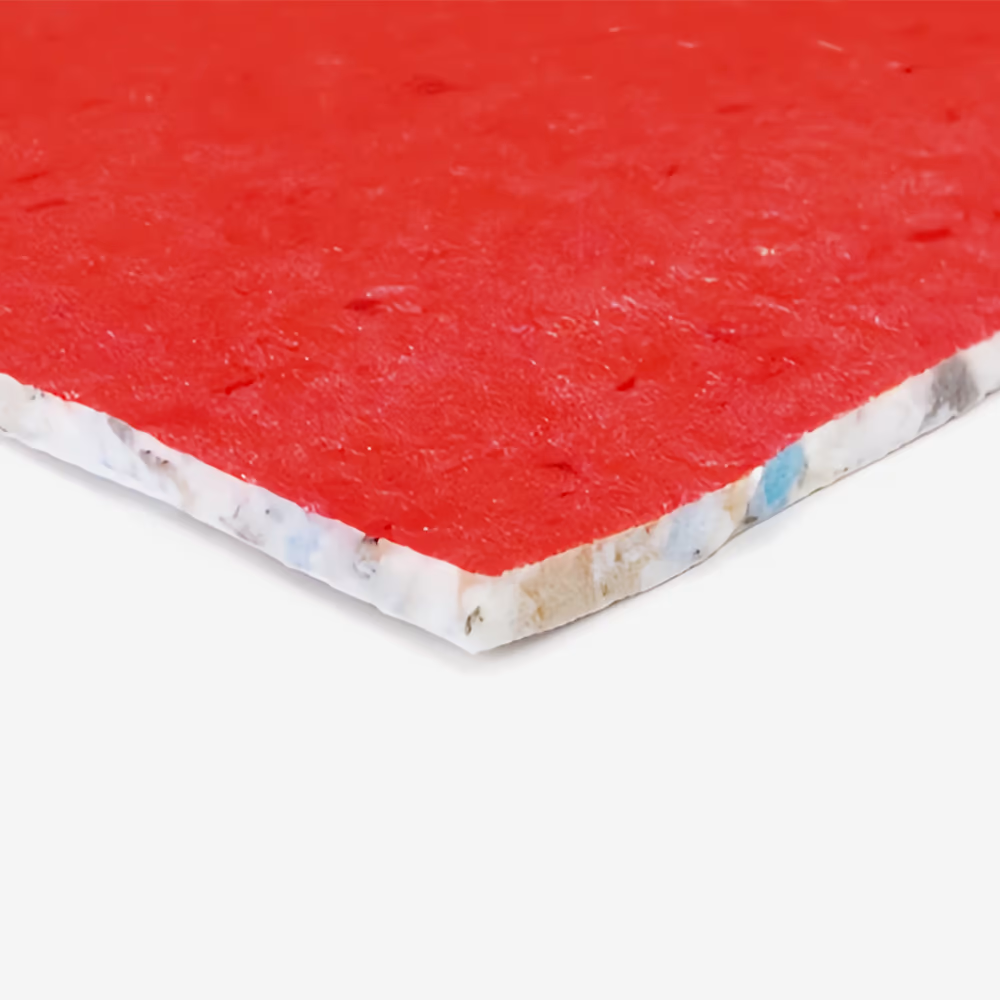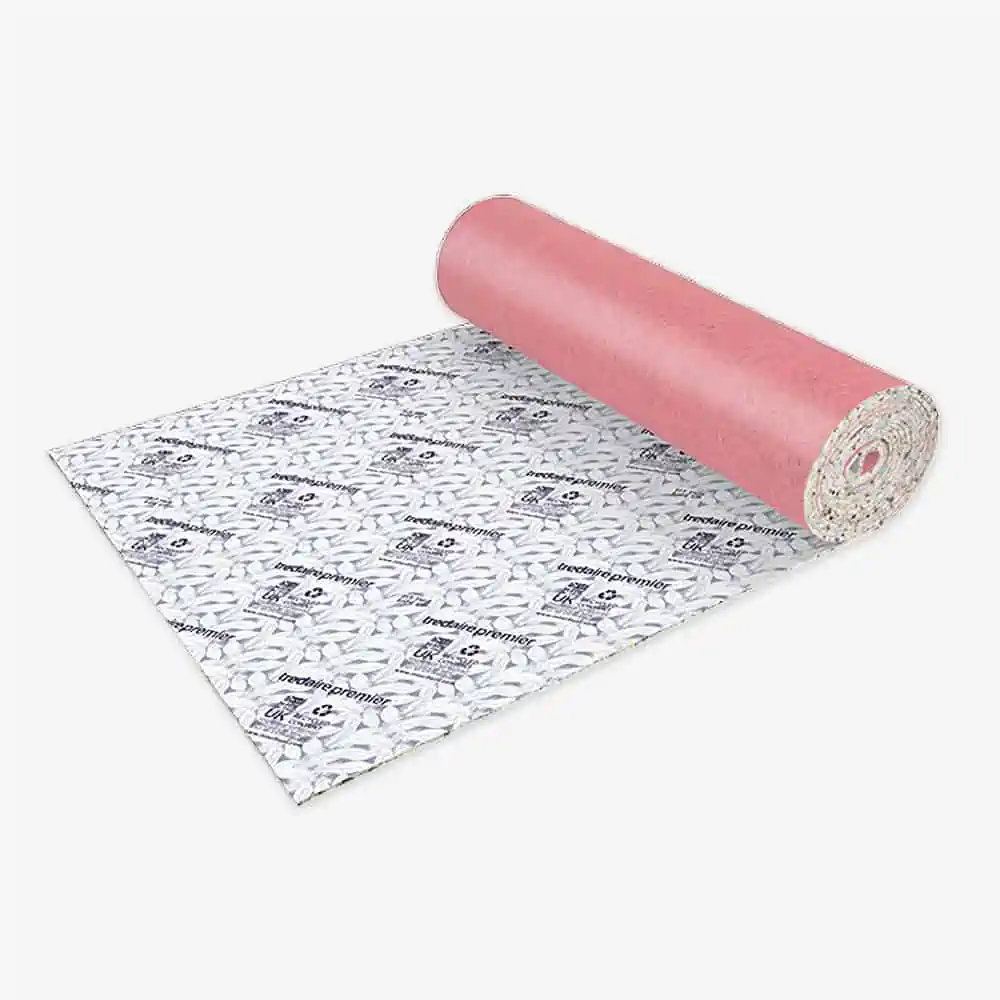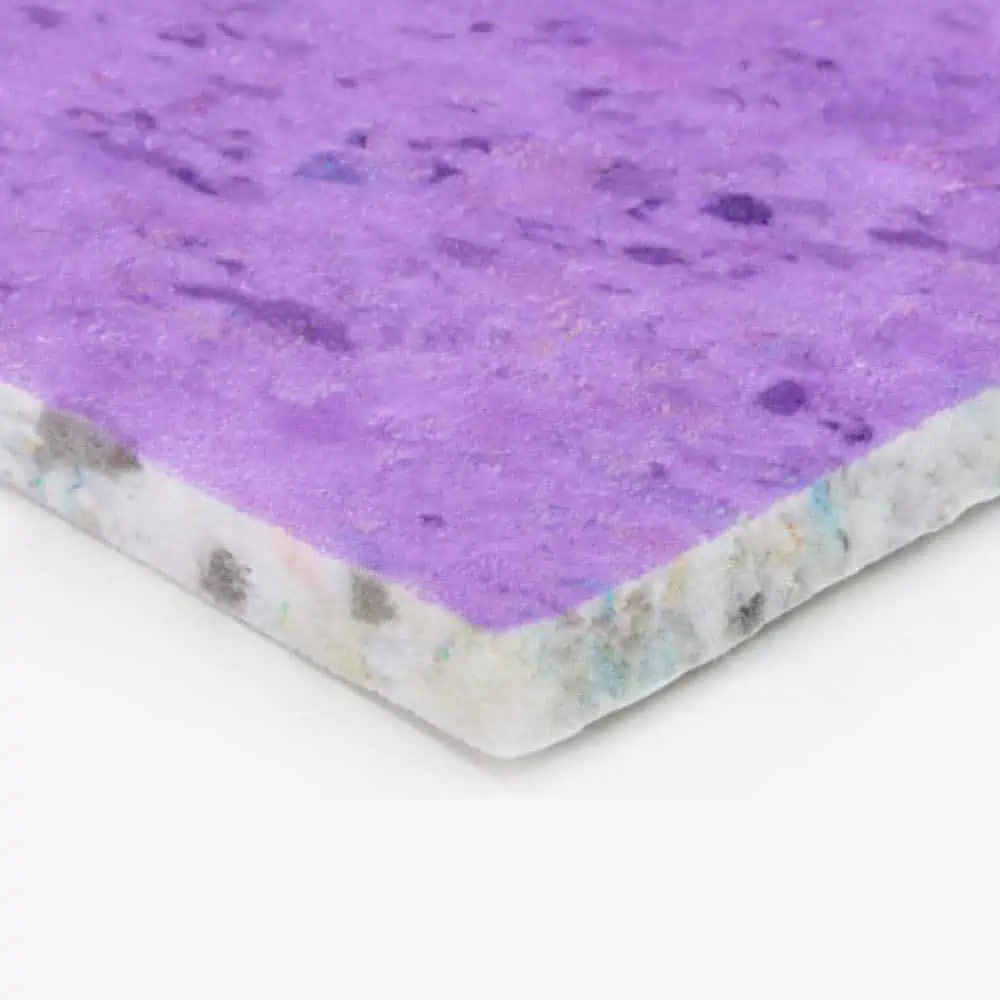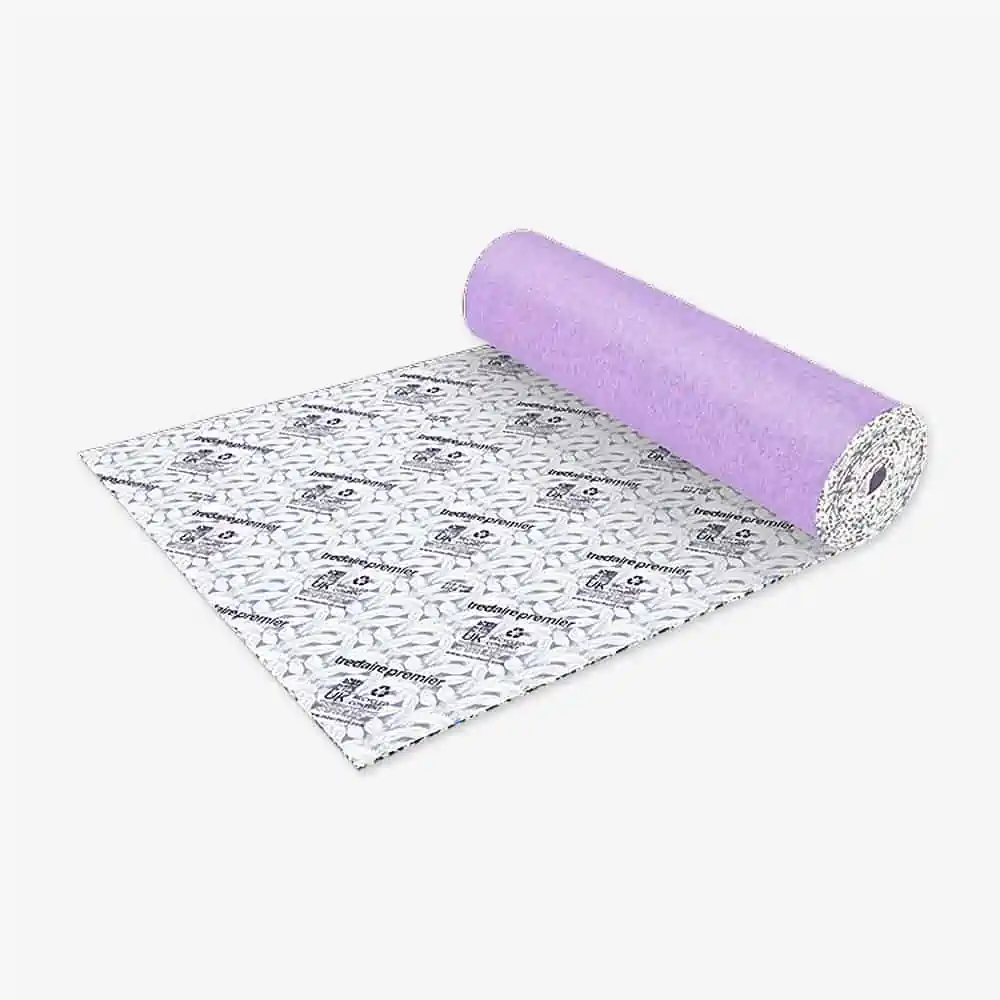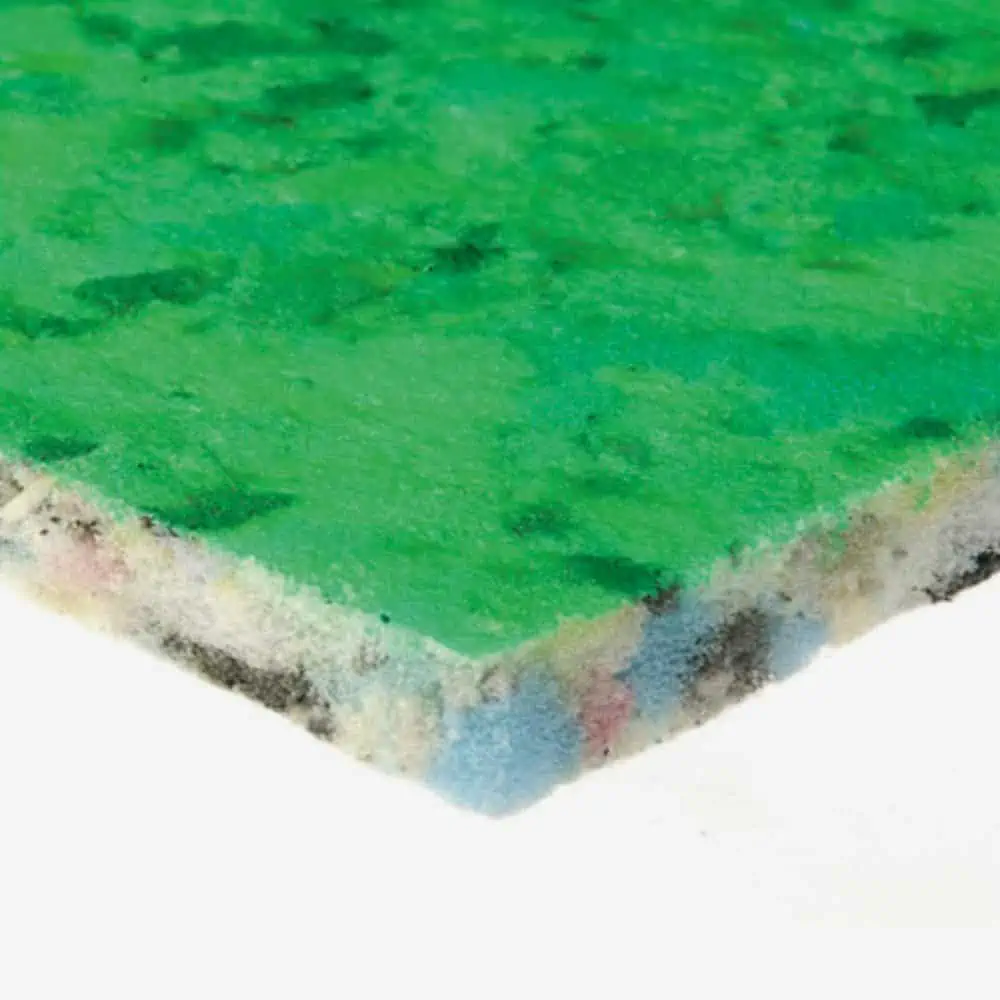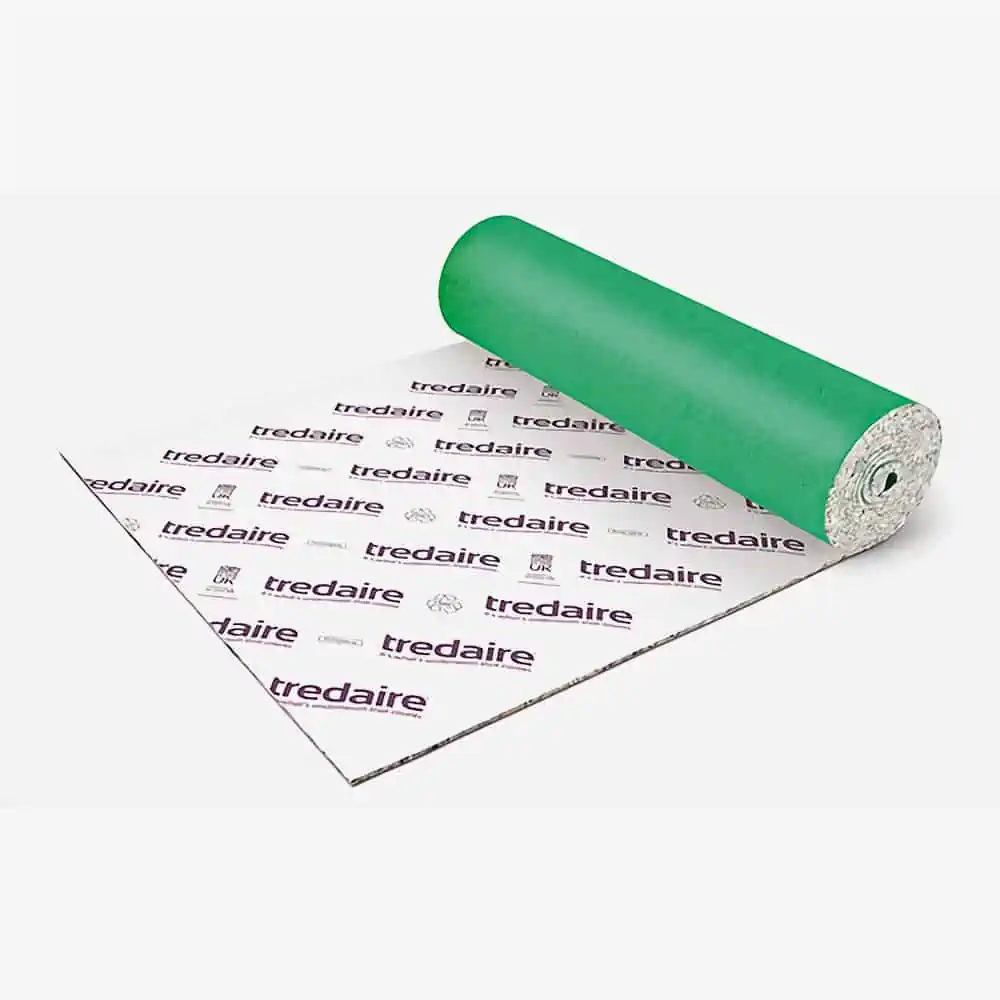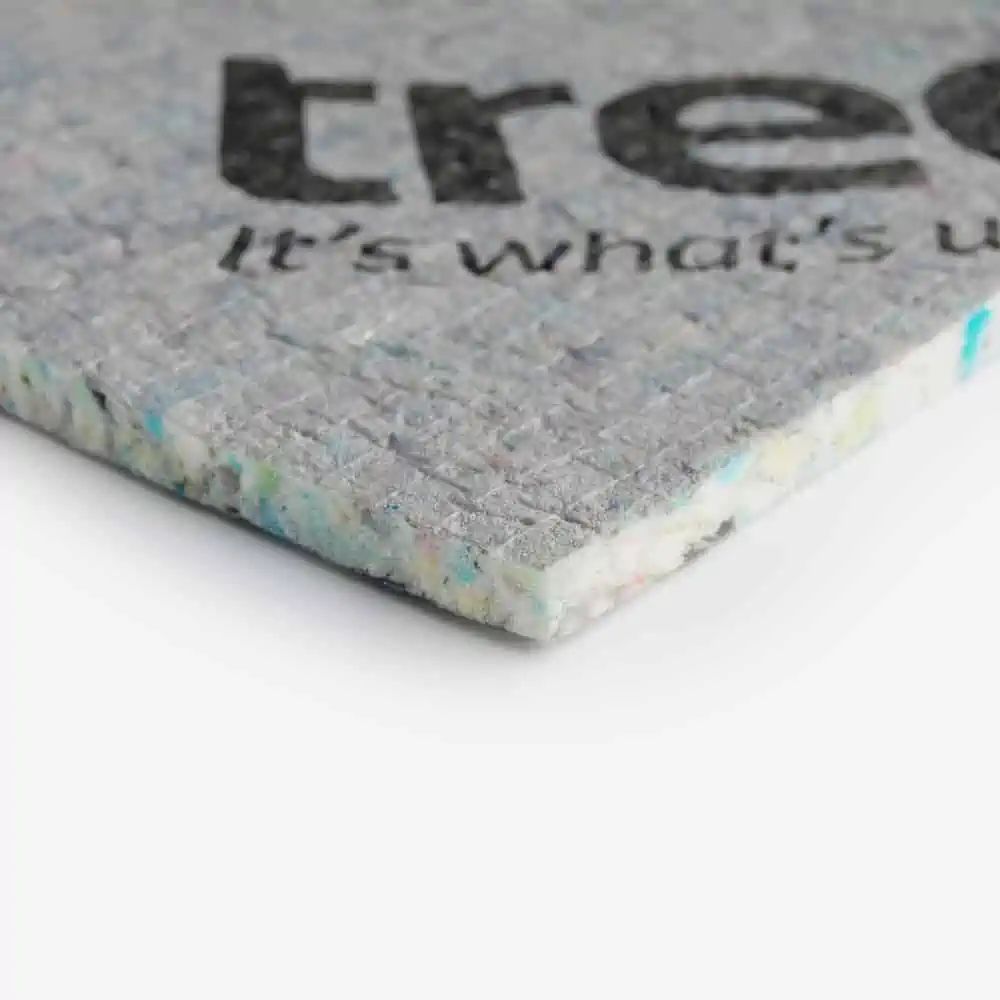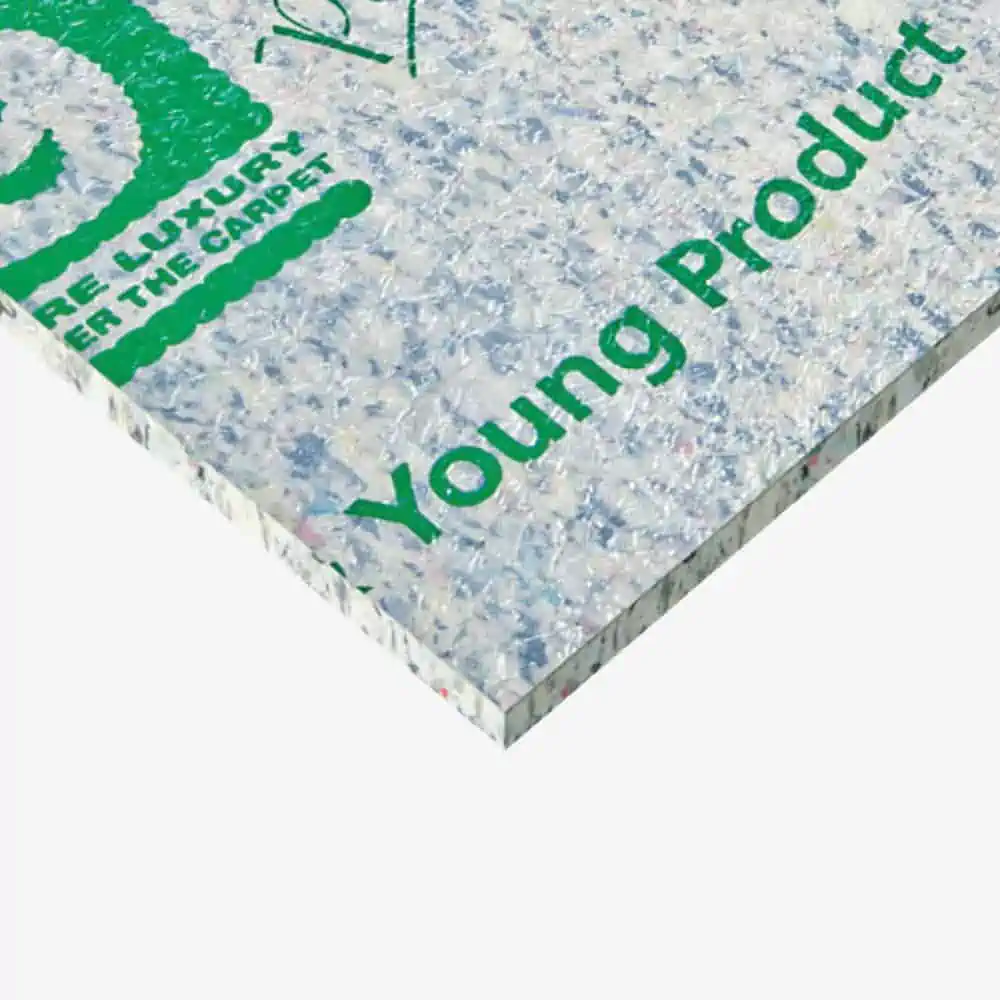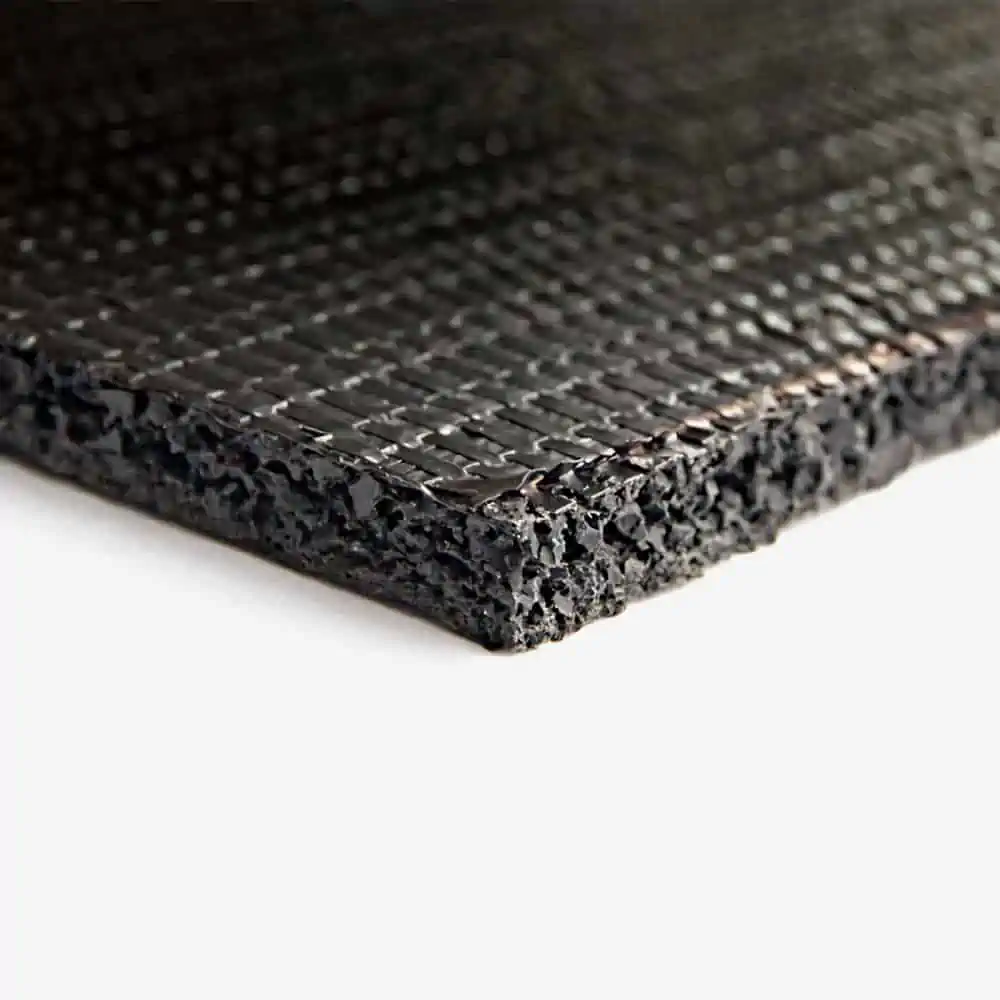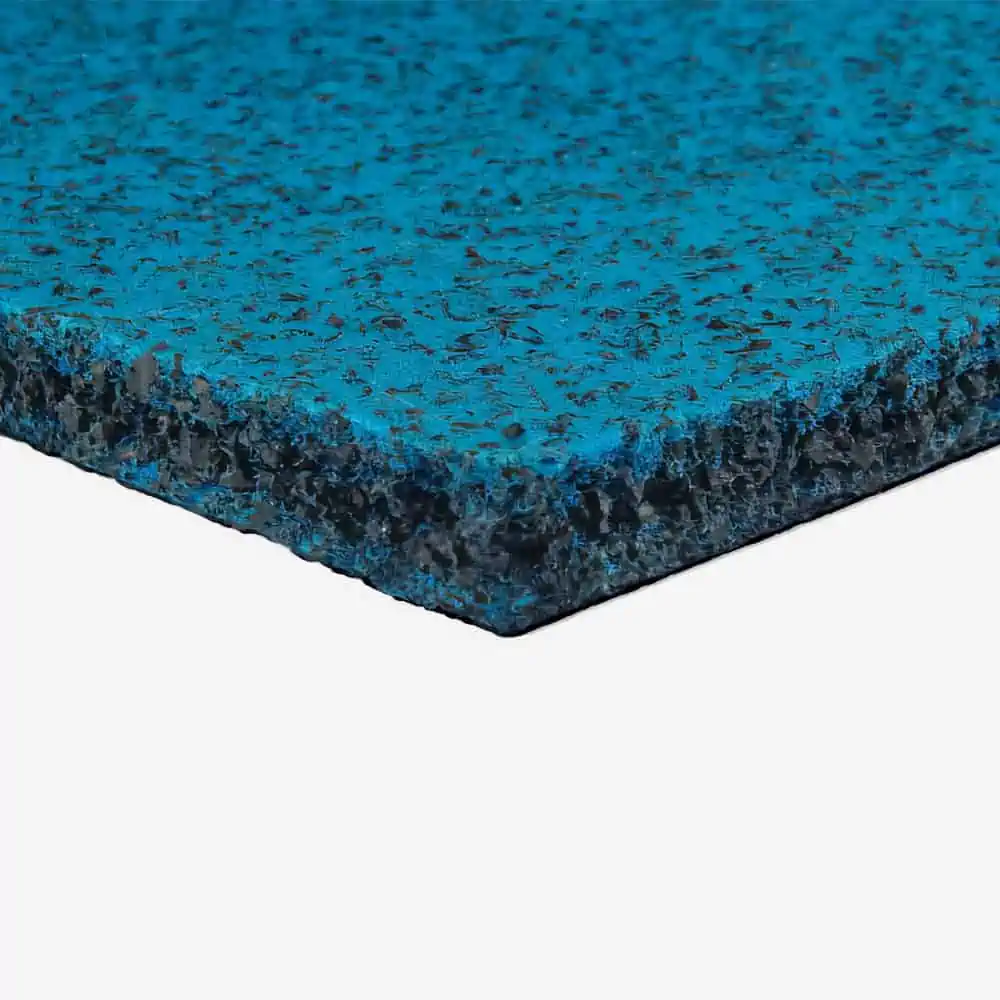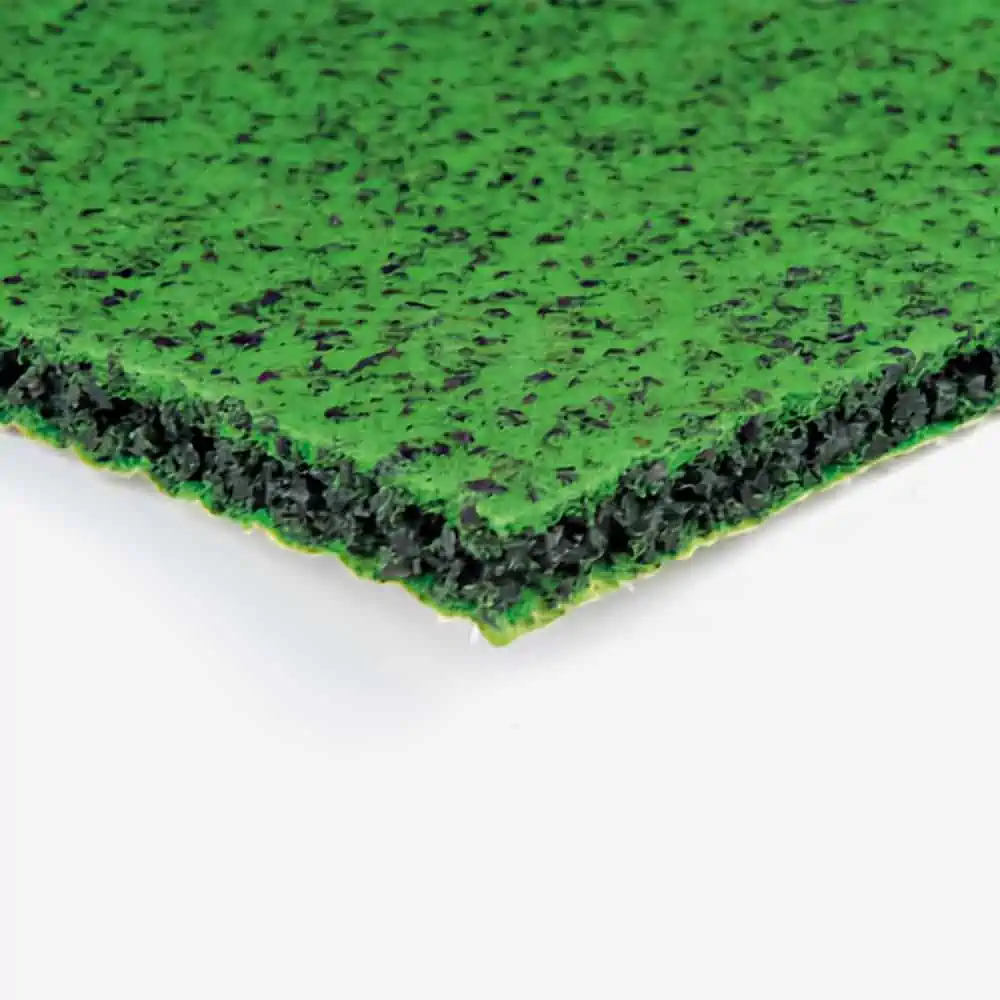When carpeting stairs, selecting the right underlay can make a significant difference in terms of comfort, durability and noise reduction. With so many carpet underlays available, choosing the right one can prove difficult.
Here, we’ll break down the best underlays for your stairs, factoring in the most important considerations.
In this guide
Do I need underlay on my stairs?
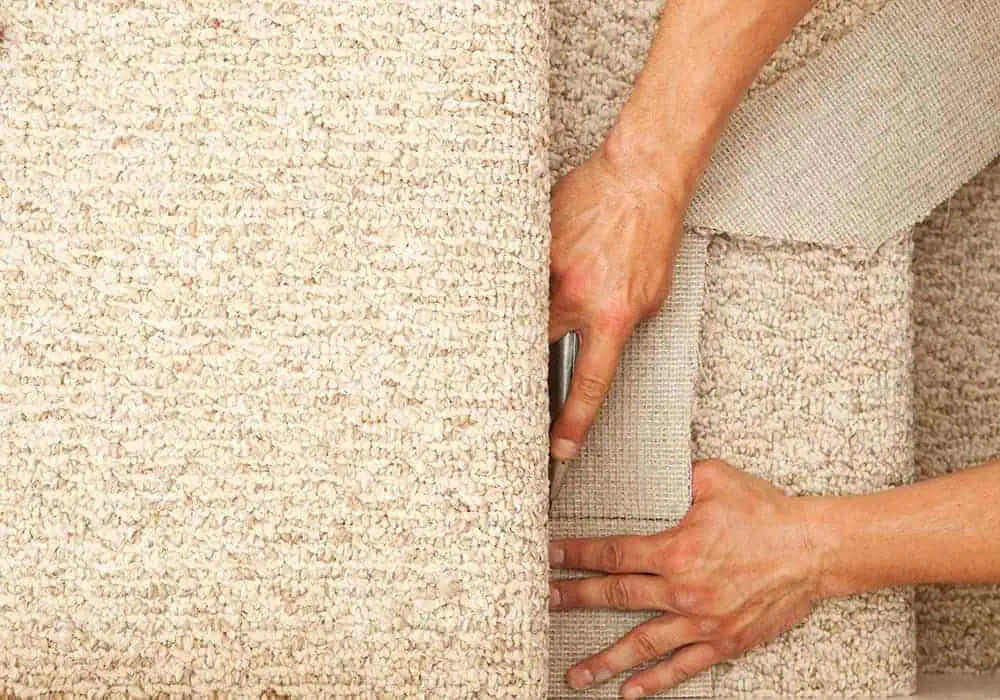
Simply, yes. The primary function of carpet underlay is to act as a barrier between your carpet and the subfloor. Underlay will protect your carpet from being crushed against the timber or concrete while helping to smooth out any minor undulations.
For this reason alone, you should always install carpet on underlay as it will prolong the life of the carpet, saving you money in the long term even considering the additional cost of the underlay itself.
Added to the above, underlay provides additional comfort underfoot and acts as an insulator, helping to keep heat in and sound out. Not only that, you will obtain a much nicer finish on your carpet installation with underlay as it provides a ‘lip’ to tuck your carpet into, which will hide the cut edges.
What makes a great stairs carpet underlay?
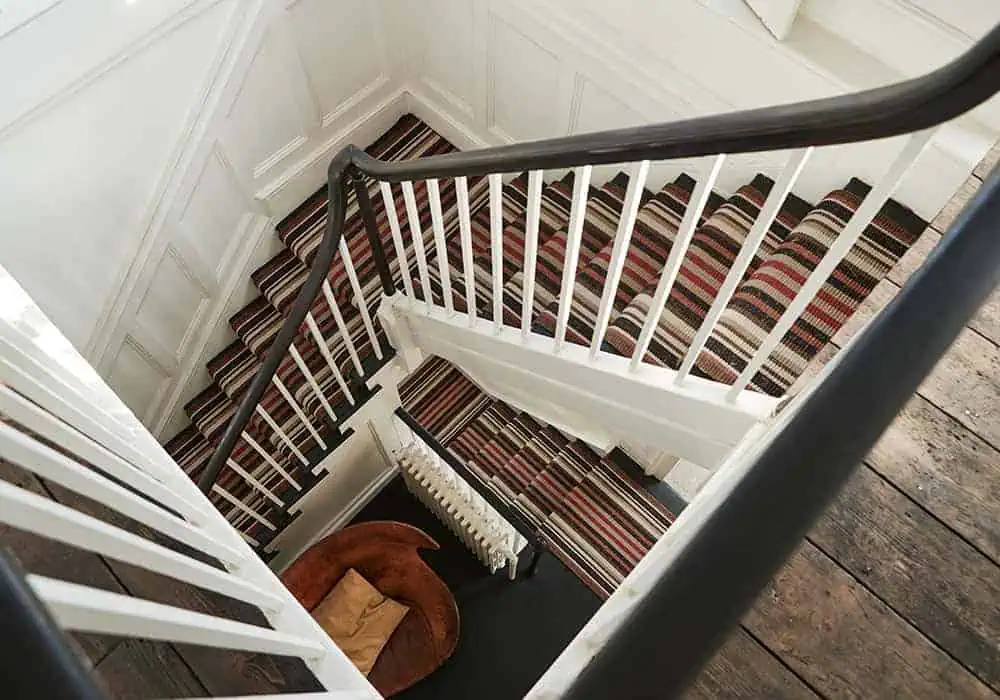
There are a number of factors to consider when purchasing underlay for stairs. Thickness, density and composition are the most important, but budget and product sustainability will be a consideration for many people too.
With underlay (and carpets for that matter) thicker doesn’t always mean better and it shouldn’t be used as a gauge of quality. When carpeting stairs, thinner underlays are often a better, more practical and safer choice.
Thinner, denser underlays have less vertical movement (they will compress less) than thicker, spongier alternatives. Choosing a thinner underlay will mean more stability underfoot (making your stairs safer to walk on) and less movement and wear on the carpet itself.
Although there is no industry standard, we recommend using underlay no thicker than 9mm on your stairs. Also, by using an underlay with a density in excess of 100kg/m³, you will ensure that your carpet is given the appropriate support to help prevent significant wear over time.
Carpet underlays will be made from either polyurethane (‘PU’), rubber crumb or synthetic rubber.
PU underlays are made from recycled foam and come in the widest range of qualities, thicknesses and densities. They have quickly become the most popular type of underlay due to their versatility, environmentally-friendly production and value for money.
Rubber crumb underlays are made from recycled car tyres, offering an excellent choice in sustainability. They tend to be the densest of all carpet underlays, meaning they are the ideal choice when carpeting stairs.
Do I need a different underlay on my stairs to the rest of my house?
If you find an underlay which is suitable for your stairs, you will be able to use it in all other areas of your home. This isn’t necessarily true the other way round – a luxurious 12mm underlay chosen for bedrooms wouldn’t necessarily be suitable for stairs. As long as your underlay is 9mm in thickness or less, with a density exceeding 100kg/m³, you can use your underlay in any area of the home.
Using one type of underlay in all areas may be easier and more economical – particularly if you are carpeting several areas of the home at once. However, you shouldn’t ignore the specific benefits of each underlay, as you may prefer different thicknesses and levels of comfort depending on how much traffic each area of your home sees.
The best carpet underlays for stairs
Below you will find our expert recommendations for stairs underlay, depending on what factor is most important to you. We personally test each and every underlay we stock, with only the best making the cut, so these suggestions are the result of our 20 years’ of experience within the industry as well as customer and carpet fitter feedback.
Best noise reduction underlay
Whether your old staircase creaks from years of use, or your stairs are used to kids tearing up and down hundreds of times each day, noise coming from your stairs can be a headache (literally).
An underlay with a high decibel (dB) rating can help to alleviate some of this stress. Tredaire Softwalk Underlay has a decibel rating of 41 and a good density value (118kg/m³), while its 9mm thickness ensures comfort underfoot and very good support for your carpet.
Each roll weighs just 16kg, meaning it is easy to transport and fit. An excellent all round underlay, perfect for your purse and easy on your ears.
Best luxury underlay
Tredaire Ambience from the the brand’s Premier range is a brilliant choice for stairs underlay, mixing exceptional levels of comfort and durability.
Made from a high quantity of quality recycled foam, at 9mm thick it offers luxury usually matched only by thicker 10mm and 11mm products.
It is thick enough to provide just the right amount of bounce under your feet, yet dense enough to offer support and longevity to your carpet. It’s also fairly priced too – the definition of affordable luxury.
Best value underlay
Tredaire Brio 8mm Underlay is an excellent value option at less than £4m². Made entirely from recycled foam, with 109 kg of foam per m³, it offers a nice feel underfoot and is a good option for all areas of the home.
Easy to install, making it a firm fitter’s favourite, it performs well for both comfort and durability.
Best hardwearing underlay
Tredaire Titanium and Cloud 9 Contract 8mm are both brilliant PU underlay choices. They have excellent densities, give comfort and support underfoot and are contract rated (i.e. suitable for commercial environments), meaning they are more than capable of withstanding even the highest foot traffic.
When it comes to crumb rubber options, Duralay Durafit 650 and Tredaire Treadmore will provide unrivalled support for your stairs carpet. They both have exceptional density ratings, enabling them to cope with even the busiest of homes. As the primary function of stairs underlay should be to withstand wear, these are both stand out choices.
Best stair runner underlay
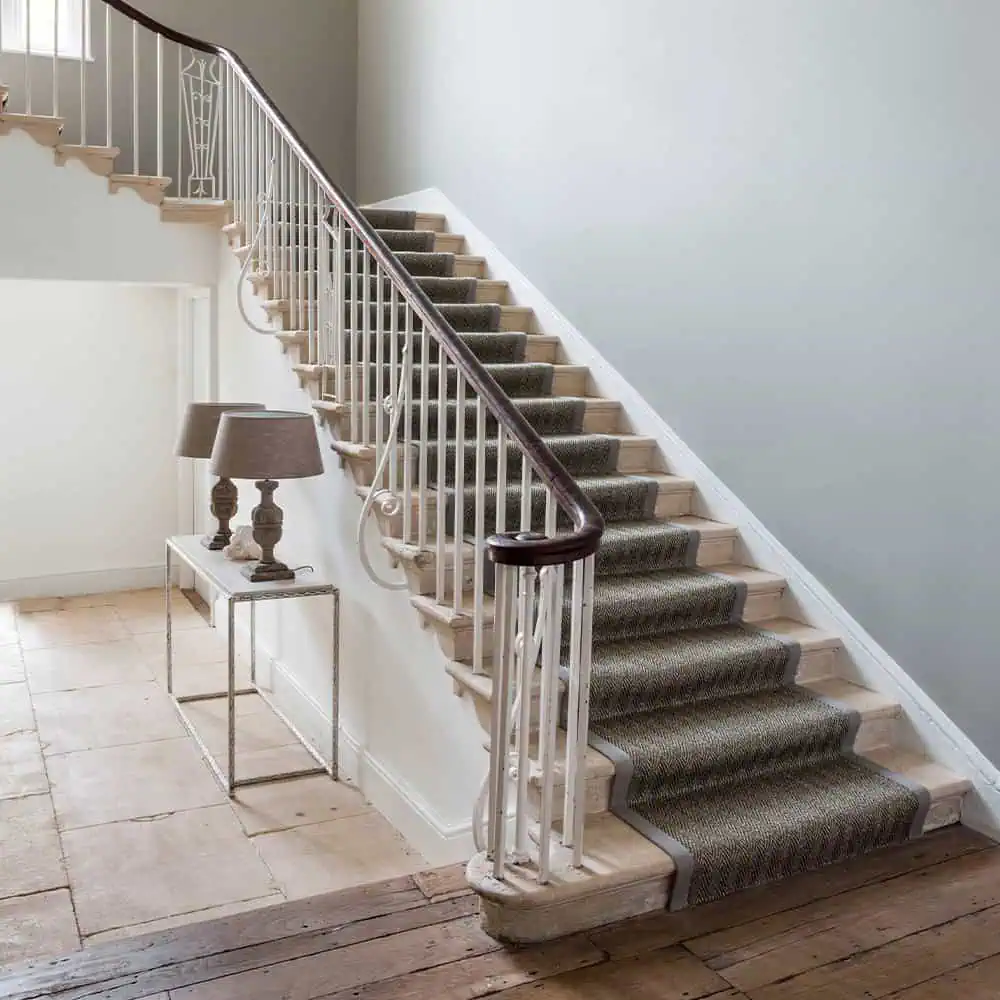
If you are fitting a carpet runner on your stairs, you should pay particular attention to the thickness of the underlay you use. Runners aren’t installed across the full width; typically there will be a gap on each side of the stair of approximately 10 cm.
This means that you may be able to see underneath the runner when looking at the staircase from the side, so you should consider using a thinner underlay (we’d recommend 6-7 mm) so that the runner doesn’t sit too proud above the stair.
With the above in mind, we think that Tredaire Super Mk 3 is the obvious choice when installing a stair runner. It is thin enough to give a neat finish while possessing exceptional density, offer the support necessary to keep your runner looking its best for longer. Great value too, a winner all round.
Best naturals/double stick underlay
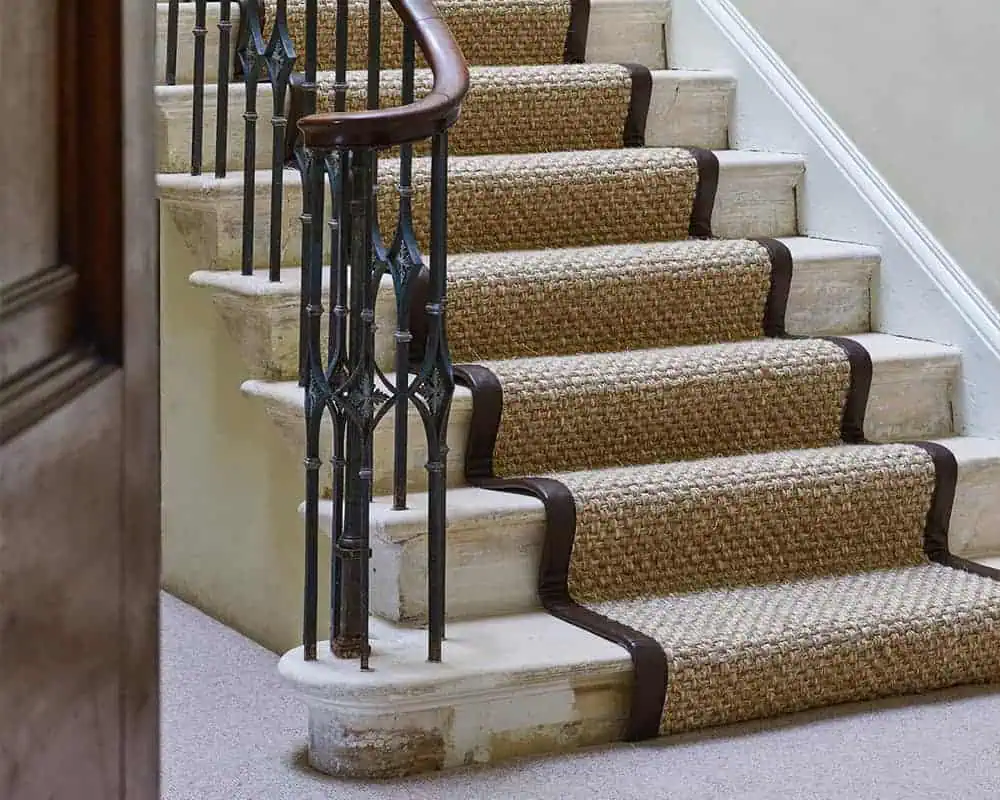
Carpets made from sisal, coir, jute and seagrass* are not fitted using the conventional ‘stretch-fit’ method. These materials have to be glued to the underlay to stop expansion and contraction as the house heats and cools. This can also be true of any carpet when fitted in a commercial setting.
Only a small proportion of underlay is suitable for this ‘double stick’ method of fitting, so please pay close attention to the information on our product pages before buying. It’s also worth consulting your fitter, to ensure they are familiar with this method and the chosen underlay.
At 6.5mm thick, Duralay Durafit 650 is built with double-stick in mind. Its density means there is very little movement in the underlay, which helps ensure the underlay is adhered to the carpet for longer. A popular and reliable choice which does the job it was designed to do, to an exceptional level.
Tredaire Titanium and Cloud 9 Contract are also suitable for double sticking. They’re not quite as dense as the rubber crumb Durafit 650, but offer slightly more comfort at 8mm thick. They are both slightly cheaper alternatives and are arguably more diverse, and can be used in all areas of the home.
*Please note: seagrass carpet should not be fitted on stairs. It is a smooth, glossy material which can cause slips and falls, which are particularly dangerous on staircases.
Stairs underlay expert tips
Our top five tips when choosing underlay for your stairs are:
- Choose an underlay with a good density. Your stairs will see a lot of traffic and wear so your underlay needs to hold up long term.
- Ensure your underlay isn’t too thick; this will ensure your stairs are safer to walk on.
- The feel of the underlay isn’t of primary concern. Dense is best when it comes to stairs underlay.
- Consult your fitter to ensure they are happy to work with the product you choose.
- Don’t just choose a good all-rounder that can be used anywhere. A good stairs underlay has very specific attributes.
If you need help determining how much underlay you’ll need for your project, read our expert guide to measuring up stairs for carpet underlay.
Alternatively, you can get in touch with our Customer Service team by emailing contact@simplyunderlay.co.uk and they will be more than happy to help.

